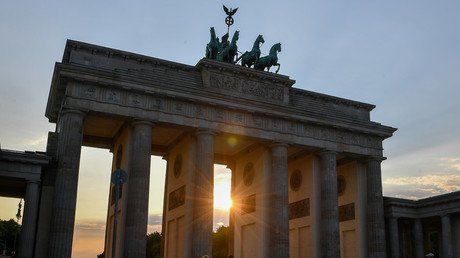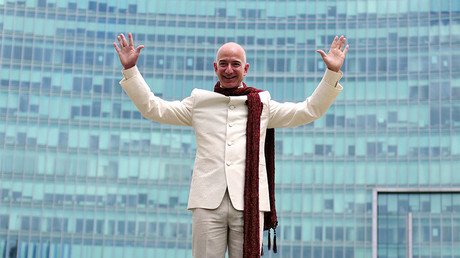‘Solid relations in time of sanctions’: Germany’s investments into Russia exceed €2 billion

German firms continue investing in the Russian economy despite facing barriers from economic sanctions, according to the chairman of the German-Russian Chamber of Commerce Matthias Schepp.
“German business extremely rarely invested in such volumes into Russia since the collapse of the USSR,” Schepp said in a statement seen by Interfax.
Citing Bundesbank statistics Schepp said that “net direct investments of German companies in 2017 amounted to more than €1.6 billion, and in the first three quarters of this year exceeded €2 billion.”
German firms were interested in opening production in Russia due to the weak ruble exchange rate, according to Schepp.
“They (foreign entrepreneurs) use the great potential of the largest country in the world with a population of over 140 million people, and they are gradually getting oriented towards export.”
He noted that the chamber’s business is represented in Russia by 873 firms and that makes it “by far the largest foreign business association in Russia.”
READ MORE: Berlin and Paris rebuff fresh calls for tougher sanctions on Russia – report
Schepp also said that the total number of German firms registered in Russia decreased from 4,965 to 4,661, or by more than six percent.
“The quantitative decline, which began after the Ukrainian conflict and the introduction of mutual sanctions, is compensated by qualitative growth,” he explained.
Earlier, Schepp told RT that “the foundations of German and Russian economic relations are solid even in the time of sanctions.”
Sanctions against Moscow were introduced by Brussels in 2014 over Russia’s alleged involvement in the conflict in eastern Ukraine. The punitive measures targeted Russia’s financial, energy, and defense sectors; along with some government officials, businessmen, and public figures.
#Germany biggest loser from EU #sanctions against Russia with ≈40% of export trade losses https://t.co/jtKzGdrmLapic.twitter.com/XRHWKQXebq
— RT (@RT_com) December 14, 2017
The Kremlin responded by imposing an embargo on agricultural produce, food, and raw materials from countries that joined the sanctions on Russia. Since then, both sides have been extending the measures.
Germany’s business lobby has criticized EU sanctions against Russia, arguing that German companies will end up the losers, since Moscow can’t be fully isolated.
For more stories on economy & finance visit RT's business section















